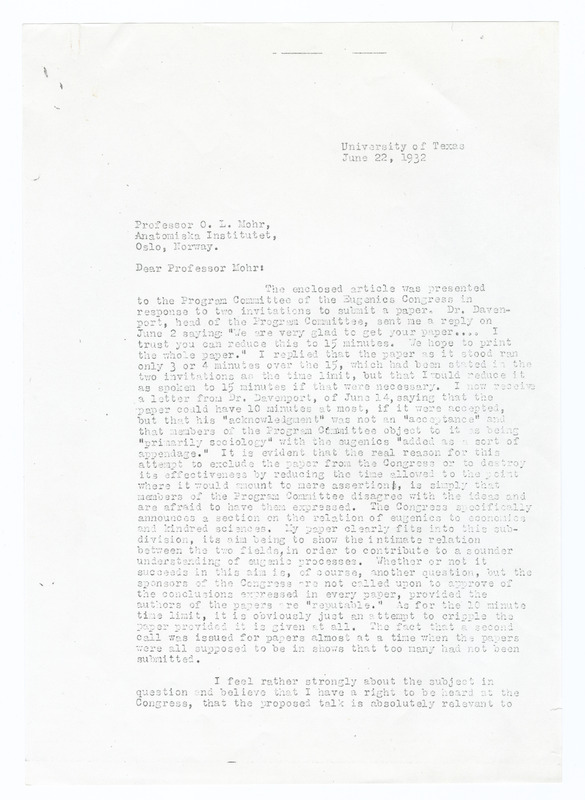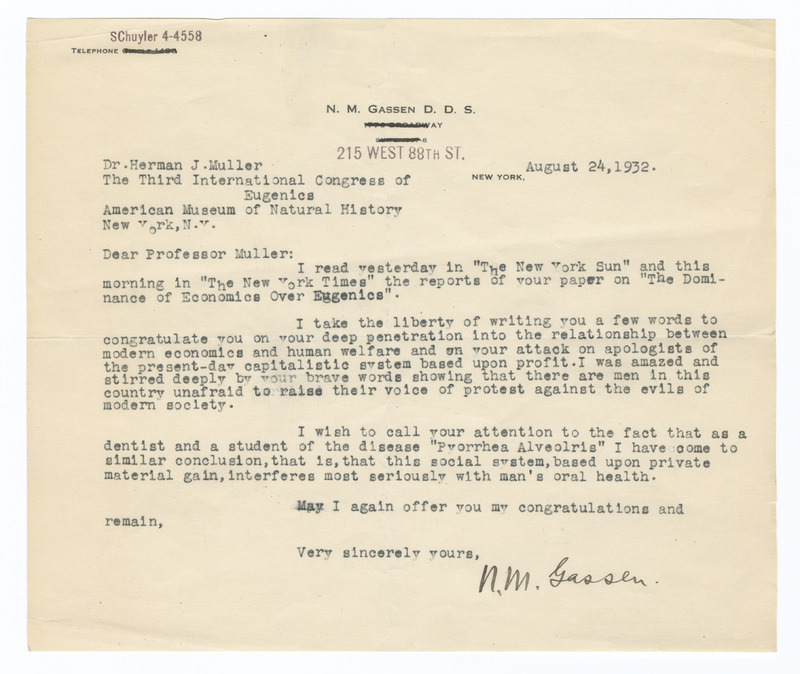
Muller took this same radical and humanistic spirit to the Third International Congress of Eugenics in New York City. Eugenics, meaning "well-born," is the fraught science of improving the human population through selective breeding and is one of the most notorious and controversial aspects of early 20th century science. Its most infamous iterations are the Nazi Eugenics programs which simply killed the "unfit" and the mandatory sterilization laws in America. It was Indiana which, in 1907, became the first state in the country to pass an involuntary sterilization law. Eugenics and genetics have a deeply intertwined history. In the 1920s, there was barely any split between eugenics and genetics at all. They shared societies and publications. This began to change in the 1930s, partly driven by internal disagreements among eugenicists, and eugenics is almost completely formally separate from genetics after World War II. However, focusing on the atrocities of eugenics alone elides that eugenics was a complex and active area of inquiry at the time, with a range of positions, many of them quite distinct from extermination and mandatory sterilization.
Muller himself was a committed eugenicist in this broader sense throughout his life, arguing that we have to take the genetic wellness of humanity seriously. And while there is certainly room to critique his stance, he advocated for strictly voluntary methods like sperm donations for those with putatively desireable traits (primarily intelligence and kindness for Muller). In 1932 he attended the Congress of Eugenics to criticize the reactionary, racist, and frankly unscientific elements he was seeing within eugenics. His submitted paper was "The Dominance of Economics over Eugenics."

Writing to the geneticist Otto Mohr, Muller recounts how the prominent (and prominently racist) American eugenicist Charles Davenport tried to minimize the impact from his anti-eugenics paper.

This letter is one of dozens of letters in the Lilly Library collection that are simply people requesting a complete copy of his talk after seeing it mentioned in the papers. The talk was widely written up in the media, including the New York Times.
In the internationally publicized talk, he argued that eugenics was ineffectual in a rapaciously capitalist society like the United States, as the environmental effects of a starkly unequal and predatory system would swamp out the genetic influence. And the same concerns repeated themselves because of the deleterious environmental effects of racism and sexism. For Muller, only under a political framework that actually facilitated meaningful social and economic equality could an effective eugenics program be created. Needless to say, the organizers were not happy. The director of the conference, the infamous zoologist Charles Davenport - whose own worries tended towards things like the mixing of the races - unsuccessfully tried to suppress Muller's paper.